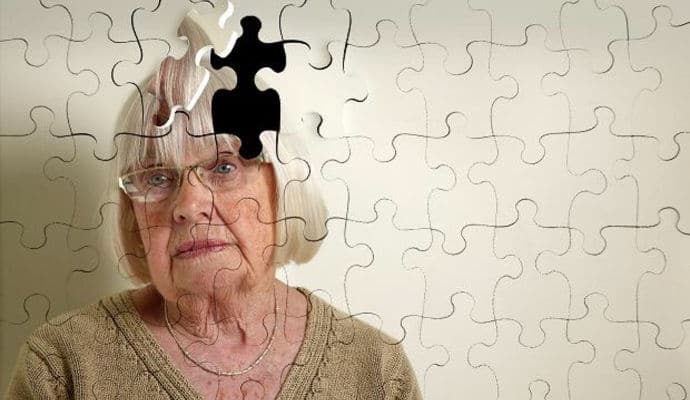Whats My Stage Again One Year Out

Ease dubiety by understanding the stages of dementia
A large challenge and source of stress in Alzheimer'south disease and dementia is the incertitude.
Nobody tin predict what will happen with your older developed's cognitive power, beliefs, or preferences or when these changes volition happen.
Just understanding the 3 stages of dementia – early on, middle, and belatedly – gives a sense of what to expect and can be used as guidelines to plan for the futurity.
We explain the 3 dementia stages, mutual symptoms in each stage, and why your older adult'southward symptoms don't ever fit into these stages.
The three stages of dementia
Typically, these stages apply to all types of dementia , including Alzheimer'south .
But it'south important to retrieve that someone with dementia may not always fit in a specific stage or go through every stage because the progression of dementia is unique and different for each person.
Early – balmy dementia
In the early on phase, a person with dementia might notwithstanding be able to live independently. They might still exist able to drive, work, and socialize.
However, they will probably have memory lapses, like forgetting familiar words or the location of everyday objects.
Other people may kickoff to notice that the person is having difficulty, experiencing memory loss, or that something "seems off."
In a thorough medical exam, doctors might exist able to detect bug in memory or concentration.
Symptoms may include:
- Struggling to detect the right word or name
- Finding it difficult to do everyday tasks in social or work settings
- Forgetting something that they just read
- Oft losing or misplacing things
- Increasing trouble with planning or organizing
- Making decisions with uncharacteristically poor judgement
Middle – moderate dementia
The middle stage of dementia is normally the longest and can last for many years.
Every bit dementia progresses, the person will need an increasing level of care.
In this phase, you might notice that they get words mixed up, are often frustrated or angry, or act in unexpected ways, like refusing to bathe.
Damage in the brain can go far difficult to express themselves and practice everyday things.
Symptoms may include:
- Forgetting things that happened recently or major events in their life
- Existence moody or withdrawn, especially in social situations or when something requires as well much thought
- Not existence able recall significant things like their address, telephone number, high school, etc.
- Getting dislocated well-nigh where they are or what day it is
- Needing assistance choosing appropriate clothes for the flavor or occasion
- For some, trouble with incontinence
- Changing sleep patterns, like sleeping during the day and being restless at nighttime
- An increased chance of wandering and getting lost
- Personality and behavior changes, including paranoia, delusions, and compulsive, repetitive beliefs similar paw-wringing
Late-stage dementia
In the final stage of dementia, people progressively lose the ability to engage in the world, to hold conversations, and to command their muscles.
They may still exist able to talk, just communicating and expressing thoughts becomes hard – fifty-fifty for something basic like pain.
Their retentiveness and cognitive skills go along to become worse and you might encounter significant personality changes or the fading of personality altogether.
At this stage, people with dementia typically:
- Need 24/7 help with daily activities and personal intendance
- Accept increasing difficulty communicating
- Lose awareness of contempo experiences and their environs
- Gradually and progressively lose physical abilities, including the ability to walk, sit, and swallow
- Become more than probable to develop infections, especially pneumonia
A person with dementia doesn't always fit into one stage
Dementia affects each person in a unique style and changes unlike parts of the brain at different points in the affliction progression.
Plus, different types of dementia tend to have different symptoms.
For example, someone with frontotemporal dementia may first show extreme behavior and personality changes. But someone with Alzheimer's disease would offset experience brusk-term retentiveness loss and struggle with everyday tasks.
Researchers and doctors still don't know plenty about how these diseases piece of work to predict exactly what will happen.
Another mutual occurrence is for someone in the eye stages of dementia to suddenly accept a clear moment, hour, or day and seem like they're back to their pre-dementia abilities. They could exist sharp for a little while and afterwards, go back to having obvious cognitive impairment.
When this happens, some families may feel like their older adult is faking their symptoms or just isn't trying hard plenty.
It's important to know that this isn't true, information technology's truly the dementia that's causing their declining abilities every bit well every bit those foreign moments of clarity – they're truly non doing it on purpose.
Knowing the stages of dementia helps you plan
Fifty-fifty if the stages aren't exact and symptoms can withal be unpredictable, being able to programme ahead is essential.
The truth is that Alzheimer's and dementia care is expensive and time-consuming. Being financially prepared for increasing intendance needs is a necessity.
On an emotional level, having an thought of what symptoms to expect helps yous find means to cope with challenging behaviors .
It also gives yous a chance to mentally prepare yourself for the inevitable changes in your older adult.
Recommended for y'all:
- 3 Ways to Respond When Someone with Alzheimer'south Says I Want to Get Home
- Therapeutic Fibbing: Why Experts Recommend Lying to Someone with Dementia
- 4 Ways to Respond When Someone with Alzheimer'southward Keeps Repeating Questions
By DailyCaring Editorial Squad
Epitome: Bowman Dental
Source: https://dailycaring.com/3-stages-of-dementia-what-to-expect/
0 Response to "Whats My Stage Again One Year Out"
Post a Comment